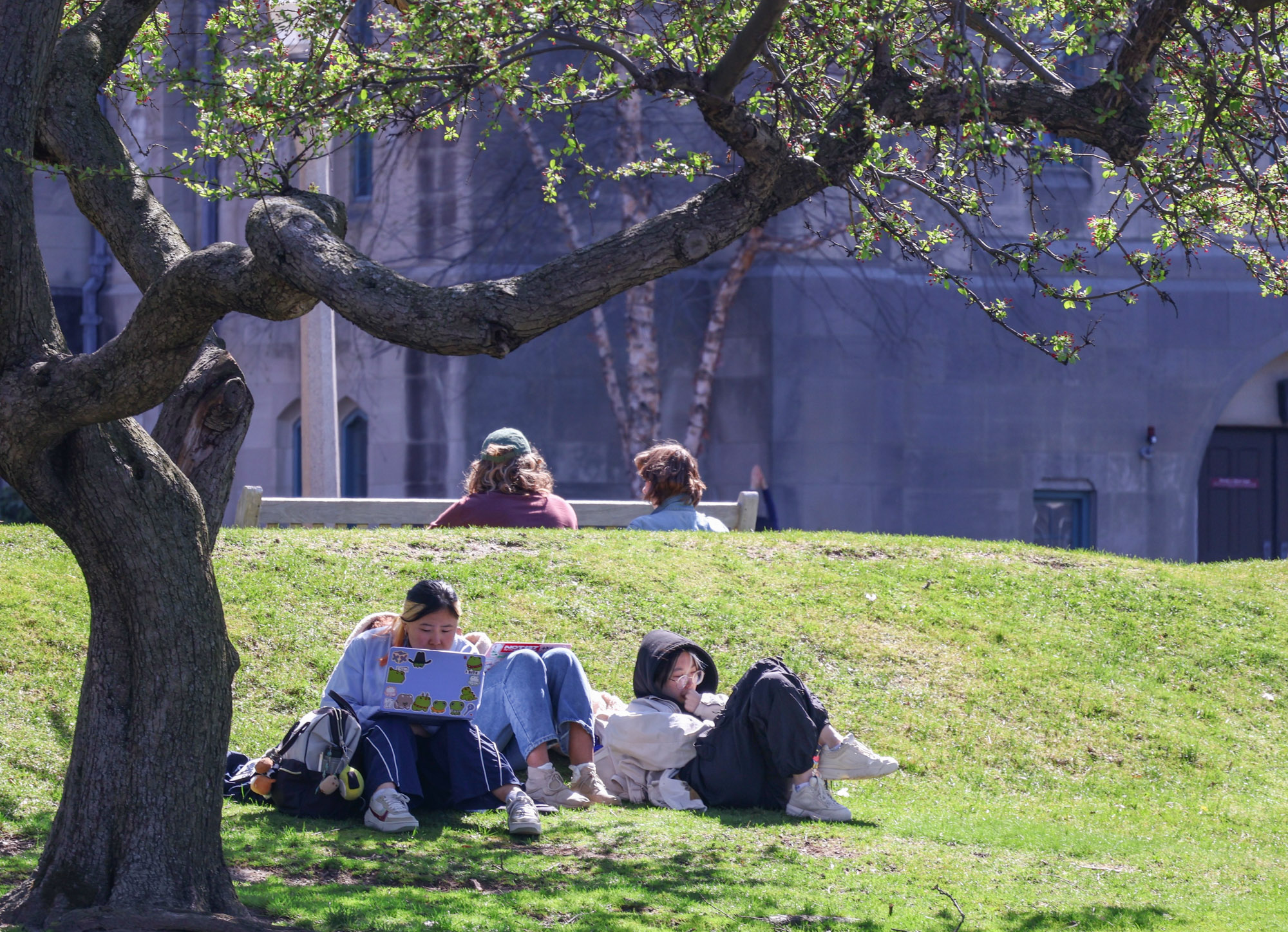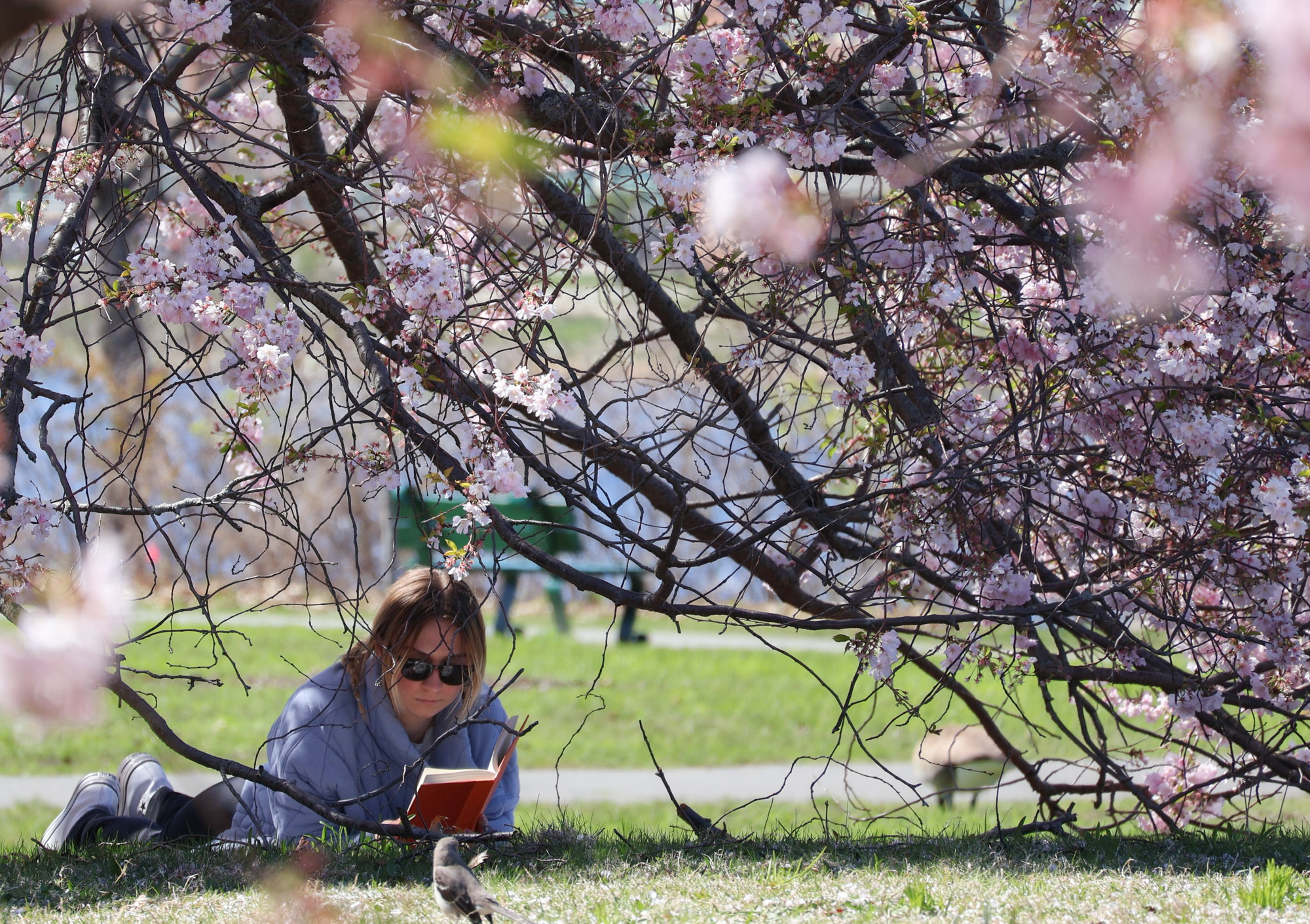There comes a point in every Boston University student’s career where listening to traffic on Storrow Drive while lounging on the BU Beach just doesn’t feel like sunbathing at the beach anymore.
BU’s campus, or lack thereof, is notoriously known for its two-mile stretch down Commonwealth Avenue with a serious lack of green space.

Despite their urban surroundings, some students have taken it upon themselves to venture far outside the city to explore nature, like Thomas Larsen, a sophomore in the College of Arts and Sciences and an executive board member at BU Outing Club.
“I would love for BU to have more green space,” Larsen said.
The Outing Club encourages students to take advantage of the natural world by organizing various outdoor activities, according to their website.
“Our big thing is to get as many people outdoors as we possibly can,” Larsen said.
The Outing Club hosts a variety of different events, from hikes, backpacking trips, camping, rock climbing, ferry tours to the Boston Harbor Island and even a dessert tour around Boston, Larsen said.
Not only does the club adventure into nature, they teach students the tangible skills needed to be prepared for various outings, Larsen said. At every meeting, they have a skill-based learning activity that can range from a knot-tying lesson to a knife safety and whittling meeting.
The club’s events range in difficulty for people of varying skill levels to get involved, Larsen said.
The club tries to run trips every weekend, but has a low capacity because BU does not supply many vans. As a result, Larsen said they rely on members who have cars on campus.
“We also run a lot of events on BU’s campus or adjacent to BU’s campus,” Larsen said. “We try and host when the weather’s nice. We’ll host picnics on the Esplanade … and we have tons of hammocks as well.”
Larsen said BU students are interested in getting involved with nature because they “do not have the capacity to meet the immense amount of demand [they’ve received].”
“We’re trying our best with the resources we have,” Larsen said.
Noah Sorin, a senior in the Questrom School of Business, said he has spent much of his BU career trying to bring environmental awareness to campus.
So he founded Idori, which stands for “I dream of real impact” and is a series of educational resources and children’s books to teach young children about the environment and sustainability.

“I wanted to create a solution to make learning about sustainability more accessible to people who don’t necessarily grow up surrounded by nature in a place in Vermont like I did,” Sorin said.
Last semester, he said he attended a Miyawaki tree planting in Brookline. The Miyawaki method is a type of forestation that involves planting many native trees in a condensed spot to increase urban tree canopy.
“I just thought it was such a beautiful community event,” Sorin said. “There were little kids helping plant trees or elderly folks planting trees. There were a bunch of nonprofits and community organizations getting involved. And I thought ‘this is amazing.’”
Sorin said the event made him realize what the students BU are missing out on.
“We would benefit so much from having a forest or other opportunities for kids to just get more access to green space,” Sorin said.
Sorin said he is working on planting a mini forest either on the Medical Campus or near the BU bridge in the fall semester, and is researching what native trees would be best to plant.
He received a research stipend from the Campus Climate Lab to focus on research to increase green spaces on campus. The team is consulting with operations and sustainability sources on campus to bring this project to fruition, Sorin said.
Sophia Beredo, a junior in CAS, is a co-president of Epsilon Eta, BU’s environmental fraternity. The fraternity’s main focus is acts of service, where they host events like cleanups on campus or the Charles River Esplanade.
They also partner with local foundations like the Emerald Necklace and Charles River Watershed to help better the surrounding environment in Boston.
Throughout her daily life, Beredo said she makes small active choices that make a difference like walking through the park on her way to get groceries.
“I think if you appreciate those small things like that you are able to experience nature on an everyday scale, and not feel like ‘Oh my god, I have to go to New Hampshire or Vermont in order to actually experience nature,’” Beredo said.
When it comes to BU students immersing themselves in nature, the concrete campus isn’t as big an obstacle as it seems, Beredo said.
“I don’t think Boston really hinders you,” she said. “You just really have to be able to appreciate the small things about nature in order to actually feel it.”
















































































































